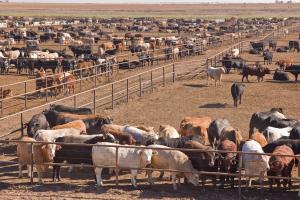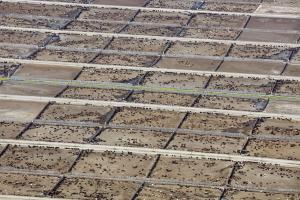Industrialised Animal Farming Must Be at the Heart of the Climate Agenda, New Study Warns
Industrial-scale farms drive biodiversity loss, deforestation, climate change, and zoonotic diseases. Without tackling these linked crises, real progress will remain out of reach.”
LONDON, UNITED KINGDOM, November 11, 2025 /EINPresswire.com/ -- A sweeping new analysis published in Animals underscores that industrialised animal agriculture is a major—and too often overlooked—driver of climate change, biodiversity loss and environmental degradation. The study, titled “The Missing Target: Why Industrialized Animal Farming Must Be at the Core of the Climate Agenda”, analysed 47 recent studies to deliver an urgent call for policy action. — Fernanda Vieira
Key Findings
• These peer-reviewed global studies showed that animal-based agriculture is responsible for approximately 12–20% of all annual greenhouse gas emissions, with the higher numbers arising from the most comprehensive studies.
• Some newer estimates go even further, attributing up to 52% of present-day global warming to animal agriculture activities when more inclusive climate accounting is used (including deforestation, bottom trawling and cooling effects from some atmospheric pollutants).
• Animal farming is an extremely inefficient way to feed a fast-growing global population, using over 80% of the world’s farmland, while delivering only 18% of calories and 37% of protein produced.
• Considering other food-originating environmental metrics, animal agriculture drives about 50% of eutrophication and 32% of soil acidification.
• Studies focused on the Global South highlight that emerging economies will see the greatest growth in animal agriculture, and particularly high emissions intensities, if current trends continue.
• Research on biodiversity shows that meat-heavy diets create dramatically higher biodiversity losses, with one study finding Germany’s current meat-based losses to be roughly 3.5 times those expected under a plant-based scenario.
Environmental & Diet Benefits
The evidence underscores a powerful environmental case for shifting towards more plant-based diets. Reducing the consumption and production of animal-sourced foods not only lowers greenhouse gas emissions, but also shrinks land use pressures, cuts pollution from fertiliser and manure, and helps preserve ecosystems and biodiversity. Simply put, a diet richer in plant-based foods offers a major win for the climate and the planet’s ecological health.
Policy Implications
The authors argue that climate strategies cannot succeed without tackling animal agriculture head on. They urge that national and international climate policies — including those under the Paris Agreement — should include specific goals to reduce production and consumption of animal-sourced foods.
They also stress region-specific strategies: emerging and developing nations should align diet shifts with food security and economic justice concerns, ensuring that transitions are fair and culturally sensible.
A Critical Opportunity for Change
"More emphasis on animal agriculture at important climate and environmental policy-making gatherings like COP30 is long overdue," stated lead author Jenny Mace. "Reaching climate and other sustainability goals would be extremely challenging without a major reduction in animal agriculture.”
“This scale of impact means animal-based food systems cannot be treated as a side issue,” stated study co-author veterinary Professor Andrew Knight. “The climate agenda demands that animal agriculture is placed front and centre of mitigation efforts—and that the promise of plant-forward diets is used to unlock both climate and ecological gains.”
Stated co-author Fernanda Vieira of Sinergia Animal, “Industrial-scale farms drive biodiversity loss, deforestation, climate change, and zoonotic diseases. Without tackling these linked crises, real progress will remain out of reach.”
A KNIGHT
Sustainable Pet Food Foundation
a.knight@griffith.edu.au
How Much Does Animal Farming Contribute to Climate Change
Legal Disclaimer:
EIN Presswire provides this news content "as is" without warranty of any kind. We do not accept any responsibility or liability for the accuracy, content, images, videos, licenses, completeness, legality, or reliability of the information contained in this article. If you have any complaints or copyright issues related to this article, kindly contact the author above.

